10+ Sample Staffing Compensation Plan
-
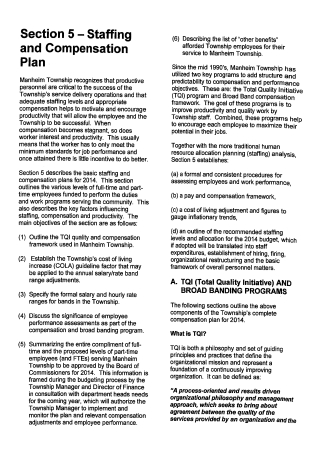
Staffing Compensation Plan Template
download now -
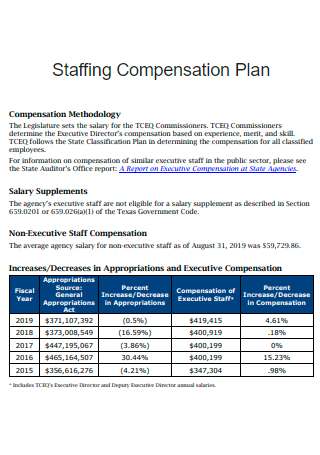
Basic Staffing Compensation Plan
download now -
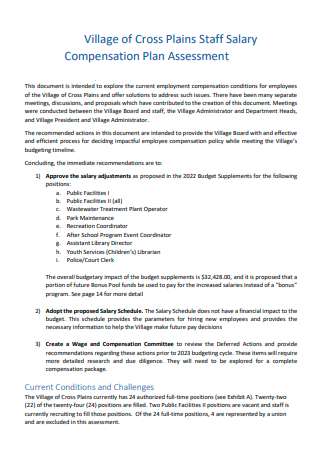
Staff Salary Compensation Plan
download now -
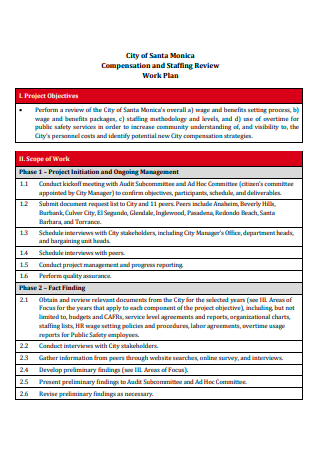
Staffing Review Compensation Work Plan
download now -
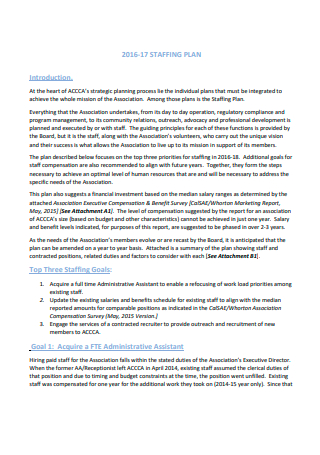
Staffing Compensation Plan Example
download now -
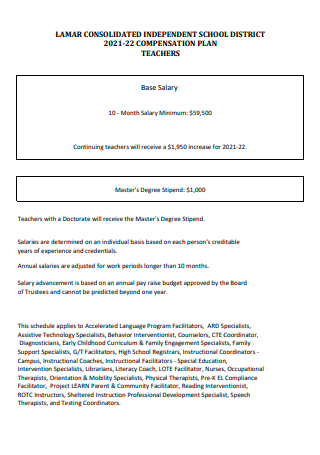
Teachers Staffing Compensation Plan
download now -
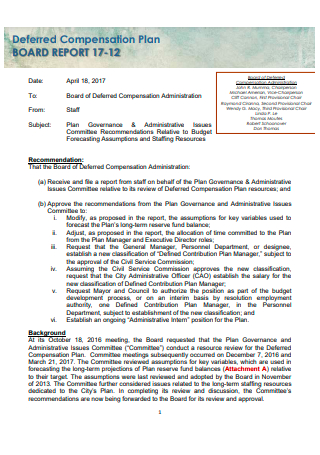
Staffing Resources Deferred Compensation Plan
download now -
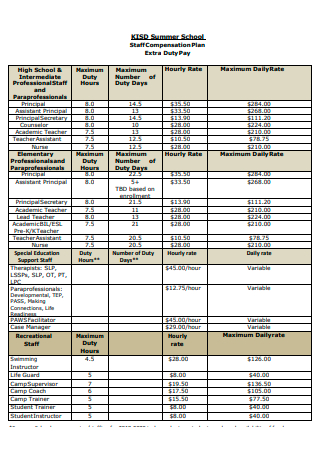
Staff Compensation Plan in PDF
download now -
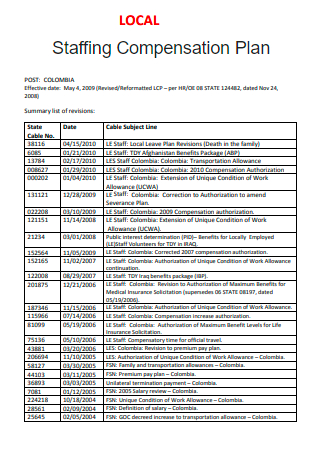
Local Staffing Compensation Plan
download now -
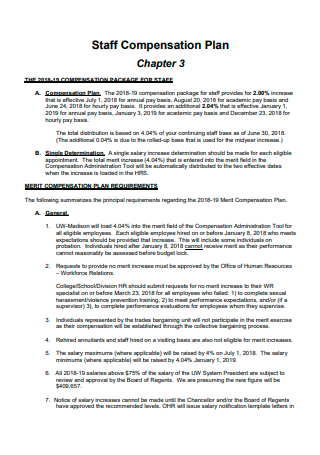
Printable Staff Compensation Plan
download now -
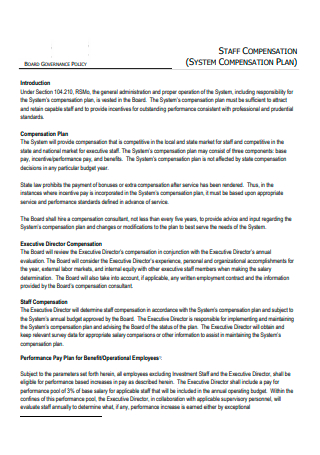
Staff System Compensation Plan
download now
FREE Staffing Compensation Plan s to Download
10+ Sample Staffing Compensation Plan
What Is a Staffing Compensation Plan?
Important Components of a Staffing Compensation Plan
Different Categories of Compensation
Different Types of Compensation
How to Develop a Staffing Compensation Plan
FAQs
Why Is a Compensation Plan needed?
Is there a difference between Base Pay and Total Compensation?
What are Incentives?
What Is a Staffing Compensation Plan?
First of all, what is compensation? Well, in business terms, it refers to a reward, which is usually monetary to an employee, in exchange for their services towards a particular company. Compensation is usually a package and can include other elements such as incentives, allowances, perks such as gym memberships, health insurance, and any other non-cash benefits.
A staffing compensation plan refers to a business document that consists of all the compensation components of a company’s structure for their respective staff which can typically include wages, salaries, perks. other incentives, and overall terms and conditions for payment. These documents also typically include schedules for a salary increase, fringe benefits, and any other union benefits or vendor discounts that are shouldered by the company.
Important Components of a Staffing Compensation Plan
To begin with, a compensation plan typically lists every information possible regarding wages and any other types of benefits. It can contain some important elements too, which are listed and discussed below:
Different Categories of Compensation
Discussed below are the two different categories of compensation:
- Direct Compensation – In a direct form of compensation, employees get direct pay in the form of hourly wages, weekly, monthly, or yearly salaries, as well as incentives and bonuses. This is the most well-known sort of compensation, and it is the most sought-after type of compensation by the majority of workers.
- Indirect Compensation – Another type of financial compensation is indirect compensation. However, instead of direct cash, indirect compensation refers to the benefits and perks that are often associated with a job role. Employer payments to a retirement plan, as well as health and dental insurance, are common components of these benefit packages. In addition, some firms may include company shares and profit-sharing in their benefits packages.
Different Types of Compensation
Listed below are the different types of compensation/compensation plans that are given to the staff or employees of the company that they work for:
How to Develop a Staffing Compensation Plan
The right method of developing an effective staffing compensation plan is to start off with lots and lots of research. With that being said, listed below are some steps you can use as a guide in developing an effective staffing compensation plan.
-
1. Outlines and Appointments
In the first step of developing a staffing compensation plan, what you need to do is to set a goal and specific targets for your compensation program. It is also recommended that you start with job descriptions for each role on the team and create a basic budget for your staff. Then, employ a compensation manager. This role, which is often filled by a human resources professional, aligns the program and studies what each position pays within the sector, how job categories will be decided, and how the type of compensation will be chosen.
-
2. Compensation Philosophy
After sorting out the outlines and appointments, begin with this step. What you need to do here is to determine how competitive your company is with regard to how it is placed in the job market of your industry. Examples of determining factors that can make your company stand out from the competition include being the market leader in terms of direct compensation or having a great benefits package in combination with a modest salary.
-
3. Classifying Jobs
In the third step of developing a staffing compensation plan, outline, for example, what, if any, pay tiers should exist in compensation structures for CEOs and salespeople. You should also consider potential levels within each job categorization. After that, rank them in order of seniority. It is critical to provide possibilities for progress in one’s job. You can develop senior-level and entry-level jobs that will have an influence on the salary matrix but will provide opportunities for progression for employees.
-
4. Fine-tuning Salaries and Policies
Once an effective staff compensation platform has been developed, perform this step. You need to determine the rates of pay and their respective range for each job position. This is the stage at which you fine-tune your organization’s budget. After that, finish the essential policies. A staffing compensation plan can have an influence on a variety of payroll, fringe benefits, and other pay-related rules. Policies can be created for paid vacations, healthcare benefits, payroll administration, and company-issued payment advancements that must be factored into, or at least aligned with, the company’s compensation policy.
-
5. Developing a Communication Plan
Following through the development of the compensation plan with this step is important since every single one of your staff should be informed about it at the same time. To disseminate the strategy, use a variety of communication means such as email, social media, fliers in popular locations, and so on. You can also make this message available in several languages if you want. Additionally, you should be prepared to answer a lot of questions since the nuances of total pay are not readily comprehended by everyone – yet every employee must understand their compensation package.
-
6. Monitoring
After everything else has been said and done concerning the development of the staffing compensation plan, it is also important to keep an eye on the compensation plan so that it may be adjusted or evolved as needed. In monitoring this document, you need to be prepared to make changes to your remuneration. Adjustments will be required over time in order for you to remain compliant with the law and competitive.
FAQs
Why Is a Compensation Plan needed?
A compensation plan is needed because companies must have a well-thought-out pay structure in place in order to remain competitive in their sector and recruit and retain top people. Employers who just pay their employees whatever they believe they should be paid will gradually lose the talent competition they are waging with their competition. Furthermore, managing a team without a specified budget is deemed ridiculous. Compensation plans should enable budgeting and planning to be regular and predictable.
Is there a difference between Base Pay and Total Compensation?
Yes, there is a difference between the two. Base pay is considered to be a portion of an employee’s total compensation package. It is also referred to as the initial pay that is given to an employee before deductions are given such as taxes and insurance. On the other hand, overtime pay, bonuses, tips, and commissions, while similarly part of an employee’s total compensation package, is not considered to be a part of an employee’s base pay.
What are Incentives?
Incentive pay is a type of remuneration that is typically indirect or non-financial in nature and is based on merit rather than time spent. Incentives are used to encourage and motivate individuals to strive to improve in their work. They generally refer to a specific objective, such as if an employee meets the stated goal, he or she receives the incentive, which might be in the form of travel, items, or even bonus cash.
An effective staffing compensation plan allows different companies to retain their top talent and recruit additional excellent staff. As said earlier, the right way of creating this type of document relies on lots of hours of research and paying emphasis to the critical steps that are needed to develop it. In this article, you can find various examples of staffing compensation plans to serve as a reference in making one.
